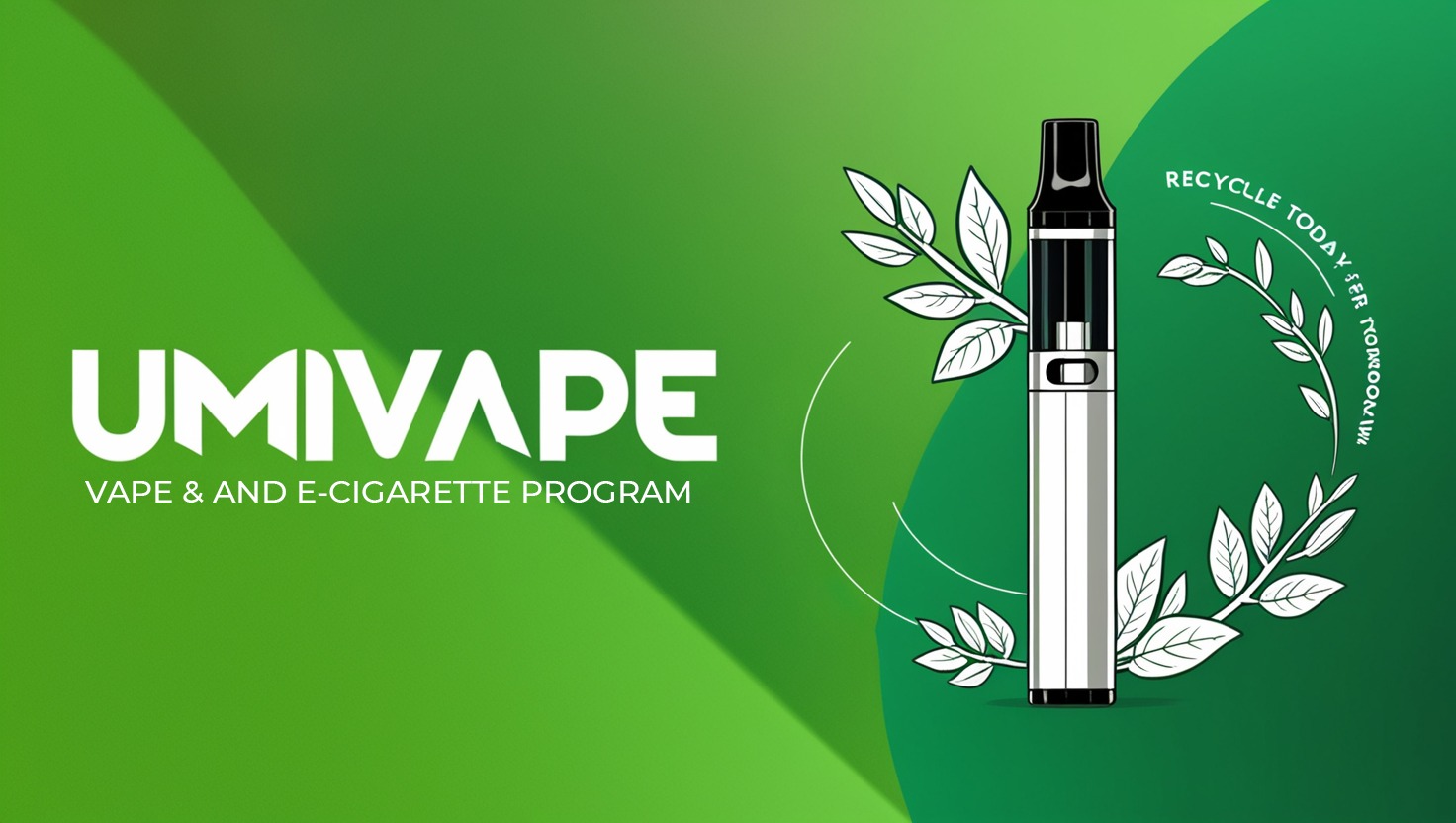As more people turn into vaping with e-cigarettes they produce significant amounts of waste which is a problem. Disposal of these products without proper disposal exposes health and safety measures and increases the extent of harm to the environment.
In addition to environmental problems, the content of lithium in materials used for vaping is a concern. To resolve these issues, and for sustainability, Veolia has initiated the recycling of vapes aimed at ensuring collection, transportation, and recycling of these vapes for lithium, cobalt, nickel, manganese.
UMIvape Vape Recycling Initiative
The UMIVape Vape Recycling Initiative means having an innovative solution to a continuously emerging issue with vapes and e-cigarettes. Thus, introducing an efficient collection and recycling scheme, Veolia plans to extract such metals as lithium, cobalt, nickel, manganese, etc. Such extracted resources can be utilised in other areas like fabrication of batteries for the electric cars.
For safe conveying and storing of vapes and e-cigarettes among others, Veolia provides containers with vermicelli – a mineral that controls fire dangers linked to lithium-ion batteries. This programme promotes the placements in the right and proper manner of wastes and the reduction of possible risks.
Benefits of Vape Recycling
1. Resource Conservation
In specific, through the technique of recycling or reuse, the campaign for vape discarding by Veolia serves the purpose of reducing the new extraction or use of important raw materials. For example, reclaiming 10 tonnes of lithium from vapes alone would be enough to support approximately 1,200 electric car batteries.
2. Reduced CO₂ Emissions
Veolia has a chance to decrease the level of CO₂ emissions because with the help of recycling lithium from vapes instead of getting lithium from the ore. Conventional production of one tonne of lithium from the new ore releases approximately 9 tones of CO₂ while recycling reduces up to 72 tones of CO₂ emission.
3. Environmental Protection
Recycling vapes helps save the environment from degrading further, reducing the contamination of the environment and harbouring harmful health materials from reaching landfills.
4. Support for Sustainability
This will go a long way to address such challenges because the programme encourages sustainable practice to fight climate change which goes with vaping products’ environmental footprint, as well as support of a circular economy.
Pulmonary Effects of Vapes and E-cigarettes
1. Increased Waste Concerns
The increase in the number of used vapes and e-cigarettes has made numerous experts concerned with the environmental impacts resulting from improper disposal.
2. Hazardous Components
Many of them have lithium-ion batteries which if thrown away in normal waste can lead to explosions or fires, which is a major concern on safety.
3. Negative Environmental Impact Produced by Lithium Extraction
The process of obtaining lithium from the ore is quite challenging and leads to air pollution. They release about nine tonnes of CO₂ per one tonne of lithium produced.
4. The Importance and Practice of Sustainable Recycling
More examining recycling for vapes reduces CO₂ emission and general use of resources, offering a far better option to normal extraction processes.
Read More: Become a UMI-vape wholesaler in Poland, Germany, and Europe and Grow your Vaping Business










Leave a reply